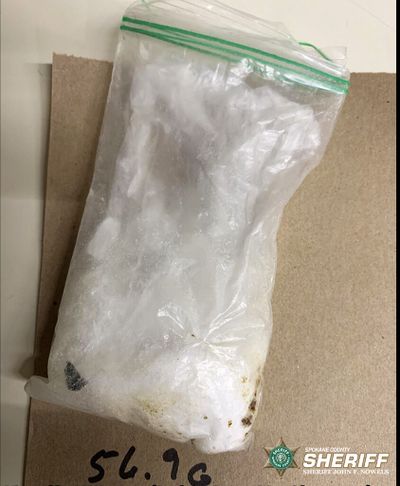Washington lawmakers strike tentative compromise on drug possession penalties ahead of special session

State lawmakers have come to a tentative agreement on drug possession and public use laws ahead of a special session that begins Tuesday.
“We had a long but productive series of negotiating sessions, and we believe that there is a tentative agreement on a responsible Blake bill,” said Senate Majority Leader Andy Billig, D-Spokane, who added that the compromise had bipartisan support.
Billig noted that, as of Monday evening, caucus leaders were still briefing lawmakers on the proposed compromise and counting votes.
One of the most significant compromises in the tentative deal was on the specific penalties for possession or public use of controlled substances.
The state Senate had originally proposed making illegal drug possession a gross misdemeanor, punishable by up to 364 days in jail and a $5,000 dollar fine, while the House had originally proposed keeping a simple misdemeanor penalty, punishable by up to 90 days in jail and a $1,000 fine.
The tentative compromise makes illegal possession a gross misdemeanor but sets the penalty for the first two offenses at up to 180 days in jail and a $1,000 fine. Jail time would increase to 364 days for a defendant with at least two prior convictions. The proposal also includes the same penalties for public drug use, but a person could not be charged with both possession and public use for the same conduct.
The proposal also addresses pretrial diversion, as well as providing paths to vacate a conviction after going through an approved substance use disorder program and meeting other requirements.
“This is a treatment-centered, criminal justice system-involved bill similar to the versions presented previously but with refinements and adjustments,” Billig said.
The special session was called specifically so lawmakers could hash out a compromise on the state’s drug possession laws, after a state Senate proposal died unexpectedly at the eleventh hour of the regular legislative session.
In February 2021, the state Supreme Court declared Washington’s felony drug possession statute unconstitutional. The case came out of Spokane after Shannon Blake said she was unaware that a pair of pants she was wearing during her arrest, which had been given to her, had a bag of methamphetamine in the coin pocket.
The court ruled that Washington’s law was unconstitutional because it made possession a felony even for people who did not know they had drugs on them.
The Legislature that year came up with a stopgap measure that expires in July, where drug possession was made a simple misdemeanor. However, for the first two offenses, those found in possession of drugs would be diverted to treatment instead of jail. Without a replacement approved before July, drug possession would become legalized.
When the two chambers tried to finalize a deal between the House and Senate proposals, no compromise could be reached prior to the end of the legislative session.
Seeing the void left by the Legislature, the Spokane City Council unanimously approved its own law criminalizing public drug use and ensuring that drug possession would remain illegal when the state’s stopgap measure expires July 1. Drug possession remained a simple misdemeanor until that expiration, at which point it would have become a gross misdemeanor.
Presuming the Legislature agrees on the tentative plan revealed Monday, the Spokane City Council would simply repeal its own law, said Council President Breean Beggs.